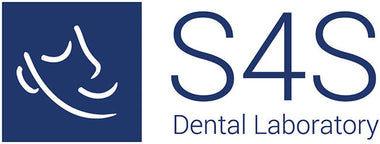Should You Brush Teeth Before or After Breakfast?
Brushing your teeth twice a day is an important part of maintaining good oral health, but should you brush them before or after breakfast?
The question is one that often sparks debate. Some people prefer brushing after breakfast to remove food particles, while others brush first to start the day feeling fresh.
But the timing of when you brush can actually affect the health of your teeth and gums more than you might expect.
So, is it better to brush your teeth before or after breakfast?
In most cases, brushing before breakfast is the better choice for protecting your enamel and reducing harmful bacteria.
Here’s why, and how to care for your smile if you still prefer brushing after eating.

Why is it better to brush teeth before breakfast?
Brushing your teeth before breakfast helps remove bacteria that builds up in your mouth overnight.
While you sleep, your saliva flow slows down. This creates an ideal environment for bacteria to multiply, which is why most people wake up with that classic 'morning breath'.
Brushing first thing removes this bacteria and coats your teeth with fluoride from your toothpaste, helping to protect them against the acids and sugars in your breakfast.
It also stimulates saliva production, which is your body’s natural defence against acid and bacteria.
So, when you do eat, your teeth are already better protected from potential enamel erosion and tooth decay.
Why is it harmful to brush teeth after breakfast?
Brushing teeth after breakfast can seem like a smart way to clean away food and drink, but it comes with risks if you do it straight away.
Many popular breakfast items like fruit, smoothies, juices, and coffee are highly acidic.
These acids temporarily soften the enamel on your teeth.
If you brush too soon after eating, the toothbrush can wear away this softened enamel, increasing the risk of sensitivity, erosion, and long-term damage.

What to do if you brush teeth after eating
If you prefer to brush your teeth after breakfast (or you just forget to brush beforehand) there are a few ways to protect your enamel and still maintain a healthy smile:
- Wait at least 30 minutes before brushing to allow time for your saliva to neutralise the acids
- Rinse your mouth with water after eating to help clear away food particles and reduce acidity
- Chew sugar-free gum to stimulate saliva production and freshen your breath
- Floss and use mouthwash to support overall oral hygiene alongside brushing
These simple habits can reduce the risk of enamel damage if you choose to brush after meals.
Choosing the right toothbrush and toothpaste
Using the right toothbrush and toothpaste plays a big role in protecting your enamel and supporting your overall oral health.
- Go for a soft-bristled toothbrush to clean effectively without damaging gums or enamel
- Electric toothbrushes are a great option for consistent pressure and more efficient plaque removal
- Use fluoride toothpaste to strengthen enamel and prevent tooth decay
If you deal with sensitive teeth, choose a formula designed to reduce discomfort while still offering cavity protection.
Want to brighten your smile? A whitening toothpaste can help tackle stains from tea, coffee, red wine, and colourful foods like tomato-based sauces and curries.
Keep your morning routine tooth-friendly
Brushing your teeth before breakfast is often the safest way to reduce harmful bacteria and protect your enamel from acid erosion.
But if your routine works better with brushing after breakfast, just remember to wait a little while and rinse first to keep your teeth safe.
Whether you brush before or after eating, using the right toothbrush, toothpaste, and supporting dental products makes all the difference in keeping your smile healthy and strong.
Explore our expert-recommended dental hygiene products today to build a routine that supports your oral health and keeps your teeth looking their best.
Blog posts
You don't have any articles yet! Once you've written one, it will show up here.
